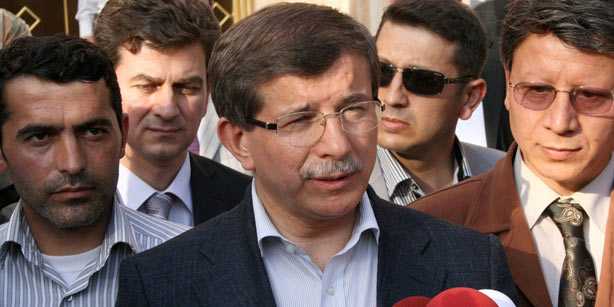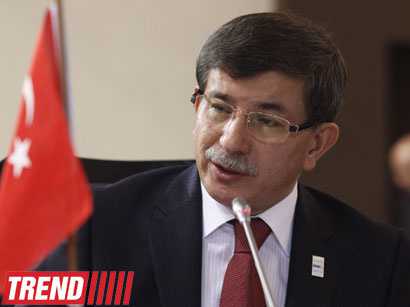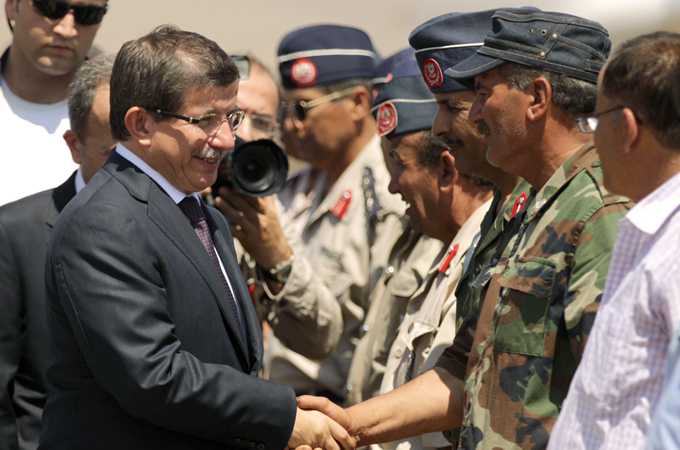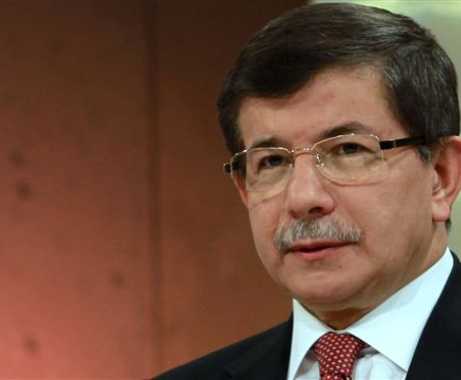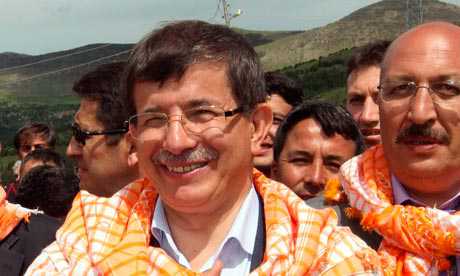ISTANBUL // As a rising regional power in a tumultuous Middle East, Turkey has laboured for months to mediate between governments and opposition groups in a region shaken by a wave of popular revolts.
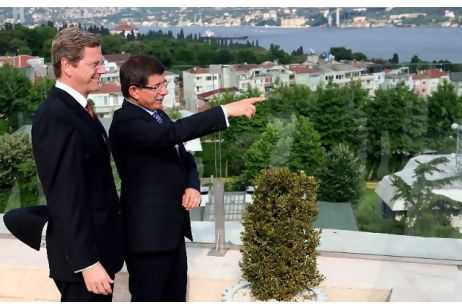
Now a potential fringe benefit of Ankara’s high-profile role is starting to appear on the horizon: Turkey’s standing with the European Union could receive a boost.
Guido Westerwelle, Germany’s foreign minister, has become the first top EU official to tell his European colleagues publicly that they should change the way they deal with Turkey, which has grown increasingly frustrated with the lack of progress in its bid to join the bloc.
“Turkey has been a stable bridge into the Muslim world, and we in Europe would be foolish if we were not to make more use of this bridge,” Mr Westerwelle said late on Friday after a meeting with his Turkish counterpart Ahmet Davutoglu in Istanbul. “Turkey plays a key role for the change in Egypt to succeed, for a political solution in Libya and for the right influence on the Syrian leadership,” he said.
“We have a massive interest for Turkey to continue to look towards Europe,” Mr Westerwelle added. The EU should treat Turkey “fairly and respectfully”.
The comments came at a time when Turkey’s bid to join the European Union has all but ground to a halt. Membership talks for the country, which started in 2005, have dragged on slowly, partly because of the unresolved conflict on Cyprus.
They also have lagged because of resistance to Turkey’s bid from some EU countries, especially France. With the decision for EU membership requiring unanimity by all its members, continued opposition by Paris means that Ankara will not be able to join the EU even if it meets all the bloc’s prerequisites.
Mr Westerwelle’s challenge to the current status quo was echoed by another top German official, who said Europe should stop looking down at Turkey and treating its potential membership as a concession by the EU. Turkey has become a “new centre of power” in the region, the official said on condition of anonymity.
For his part, Mr Westerwelle said he would try to get Turkey’s membership talks moving again later this year. He also pointed to Turkey’s growing economic clout. The country posted a growth rate of nearly 9 per cent last year and 11 per cent in the first quarter of this year, far outstripping any EU nation.
But it is Ankara’s diplomatic assertiveness in a time of regional upheaval that has called into question the scepticism in some European capitals.
Turkey’s contacts and access in the region exceed those of most European governments and while Ankara was initially surprised by the outbreak of popular revolts around the Arab world, it has deftly exploited this advantage in attempts to negotiate with both governments and opposition groups to stop bloodshed and navigate peaceful paths for a transition of power.
German officials, speaking on condition of anonymity, said Turkey was in a better position than other countries to get through to embattled regimes in Syria and other places. “If someone is able to get through to the Syrians, it’s the Turks,” one official said.
Mr Davutoglu’s travels in the past few days alone underscore the busyness of Turkish diplomacy.
After his meeting with Mr Westerwelle in Istanbul, he flew to Cairo for talks with Egyptian officials and representatives of the Arab League. On Sunday, he visited the Libyan city of Benghazi for talks with Libyan opposition officials. He is planning a trip to Damascus in the coming days.
In his press conference with Mr Westerwelle, Mr Davutoglu was keen to underline that Europe remained a “top priority” for Turkey despite the lack of movement in its membership application. The main aims of protesters of the Arab Spring represented European values, he said. “Demands for democracy, transparency and the rule of law are joint values of Germany and Turkey.”
Another official said one reason for Mr Westerwelle’s visit to Istanbul was to get a clearer picture of Turkish actions around the region. Noting that the US administration was cooperating closely with the Turkish government on the issue of Syria and other countries hit by popular uprisings, the official said there had been “a feeling in Berlin that we should also coordinate with the Turks”.
Mr Westerwelle’s position that Europe should be more open towards Turkey is a minority opinion in the EU and in the ruling coalition in Berlin, where Angela Merkel, the chancellor, favours a “privileged partnership” between Europe and Turkey instead of full membership by Ankara.
Turkish politicians and diplomats have grown increasingly irritated with what they see as double standards by the EU and efforts by EU countries to make Ankara pull out of membership talks. In the latest sign of growing anger, Selim Kuneralp, Turkey’s ambassador to the EU, told euobserver.com, a website specialising on EU affairs, that “people in Ankara are fed up”.
The ambassador added that Turkey did not feel obliged to heed EU suggestions concerning the planned new constitution for the country, a key undertaking in Ankara in the coming months.
In other circumstances, a country planning to join the EU could be expected to listen to what Brussels has to say about constitutional norms.
“But in the absence of any clear perspective of accession, there’s no reason why Turkey should align its legislation toward narrow EU standards,” Mr Kuneralp said. “To put it simply, the EU has lost its leverage on Turkey.”
That development is raising concerns that Turkey may be turning away from Europe altogether one day.
“At some point, the connection will break,” said a German official travelling with Mr Westerwelle.

